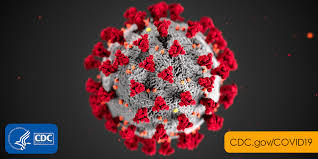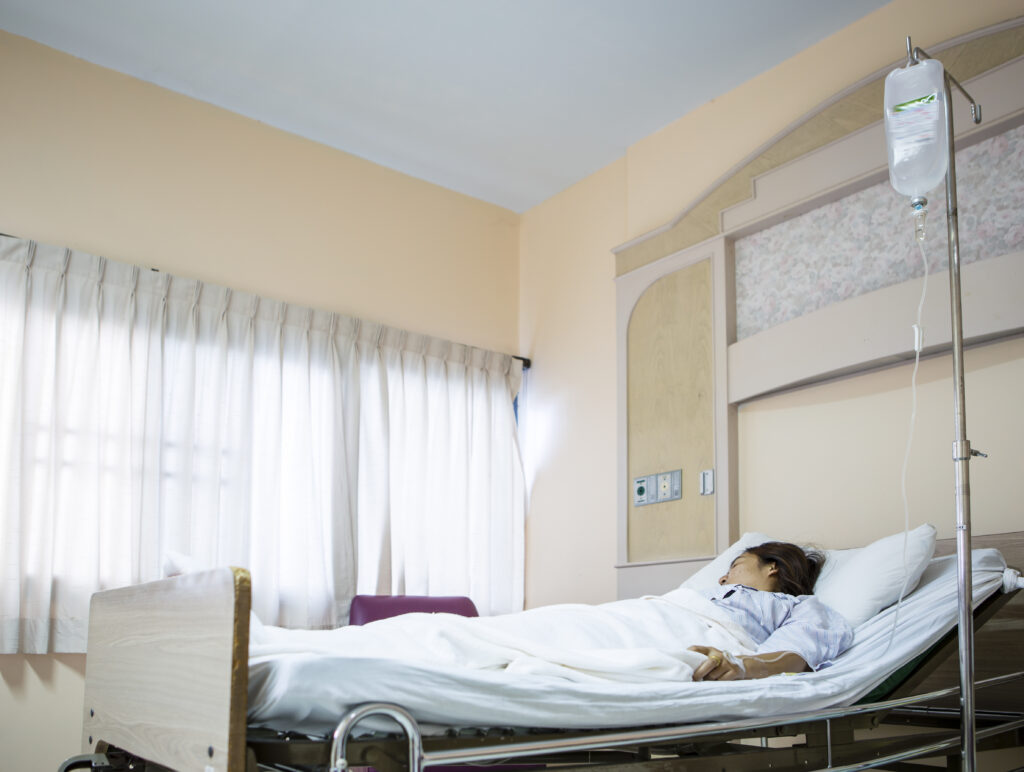By: Carolyn Myers, Lindsey Butkus & Kathy Subasic
“We’re in uncharted territory.” states Panhwar (ABC News, 2020) referring to COVID-19. This novel coronavirus (COVID-19) impacts not only the respiratory system, but also negatively impacts the heart, kidneys, brain, and mental health. In addition, a new pattern of blood clotting called COVID-19-associated coagulopathy, or CAC, has emerged. Currently there is no vaccine or cure for COVID-19.

One’s recovery can vary depending upon the severity of symptoms.
Below are a few details about the anticipated recovery from COVID-19:
- Most mild cases are expected to recover in 1-2 weeks with no residual deficits (Schumaker, 2020).
- Those with moderate cases who require a few days of hospitalization and a little oxygen may experience chest pain and inability to exercise but will recover in a way similar to other viral diseases (National Jewish Health, 2020).
- Individuals with a severe case may experience memory issues, Post-Traumatic Stress Disorders (PTSDs), and exercise intolerance (National Jewish Health, 2020).
- Other severe cases with no ventilation may escape long-term effects
- Twenty to thirty percent of persons who receive mechanical ventilation assistance may develop pulmonary fibrosis (scarring of lungs) (National Jewish Health, 2020).
- Time of onset to having fewer or no symptoms for severe or critical cases may take 3-6 weeks, but may require several months to a year to recover full lung function. (WHO, 2020)
- Muscle weakness and fatigue can last up to one year (American Lung Association).
- Some individuals with severe or critical cases, as well as those requiring placement on Extracorporeal Membrane Oxygenation (ECMO) life support, may never return to their prior lung function.
COVID-19 survivors may face a variety of difficulties after hospitalization, some due to the effects of the virus, others due to prolonged bed rest (ADVANCE Staff, 2003). The effects of prolonged bed rest may include the following.

- Decreased ankle range of motion which can make walking difficult or painful.
- Loss of muscle strength causing weakness and fatigue. Walking short distances becomes difficult and walking stairs can become dangerous.
- Loss of bone density requiring 3 to 6 months to return to normal putting individuals at risk for fractures due to falling.
- Deterioration of neck and trunk muscles used for breathing.
- Increased weakness of diaphragm, intercostal muscles (muscles that run between the ribs), and accessory muscles for breathing.
- Weak cough and pneumonia or lung infection.
- Hyperglycemia (high levels of sugar in the blood). High blood sugar is a leading indicator of diabetes.
- Postural Hypotension (low blood pressure), decreased cardiac function.
- Blood clots in the legs and lungs (due to bedrest and inactivity).
- Decreased concentration, orientation and intellectual skills after several days of bed rest.
- Anxiety, depression, irritability and decreased pain tolerance.
How Long Will It Take to Recover?
In general recovery will take about twice as long as the period of immobility in a relatively healthy person and longer in a person who is sick or frail.
- The automatic reflexes that prevent an individual from falling may not return for three to ten weeks. For the elderly, it may take even longer.
- One’s ability to tolerate a normal level of physical activity may not return until three to ten weeks of gradual increases in activity.
Home Modification Occupational Therapists specialize in helping you modify your home and your routines to help you transition from hospital to home.
Written by : Carolyn Myers. Home Mod OTR/L, HMOTA, CAPS, CHAMPS, ECHM. Safe Surroundings, LLC, Springfield, MO
Lindsey Butkus, OT, HMOTA, Move Fullest LLC, Loveland, OH
Kathy Subasic, PhD, OTR/L, HMOTA, ECHM. Forever Home, LLC, Hartford, CT, www.foreverhomect.com
References
ADVANCE Staff. (2003, April 1). Bed rest can set off a chain of complications. Retrieved from https://www.elitecme.com/resource-center/rehabilitation-therapy/bed-rest-can-set-off-a-chain-of-complications/
American Lung Association (n.d.). Lung and health diseases: Recovering from ARDS. Retrieved from http://www.lung.org/lung-health-and-diseases/ lung-disease-lookup/ards/recovering-from-ards. Html
National Jewish Health. (2020? Or n.d., ). COVID-19: What to expect when you’re recovering {Video file}. Retrieved from https://www.nationaljewish.org/conditions/health-information/multimedia/coronavirus/covid-19-what-to-expect-when-youre-recovering
Schumaker, E. (2020, April 17). What we know about coronavirus’ long-term effects. Retrieved from https://www.yahoo.com/gma/know-coronavirus-long-term-effects-190600532–abc-news-topstories.html.
World Health Organization. (2020). Report of the WHO-China Joint Mission on Coronavirus Disease 2019 (COVID-19). Retrieved from https://www.who.int/docs/default-source/coronaviruse/who-china-joint-mission-on-covid-19-final-report.pdf
